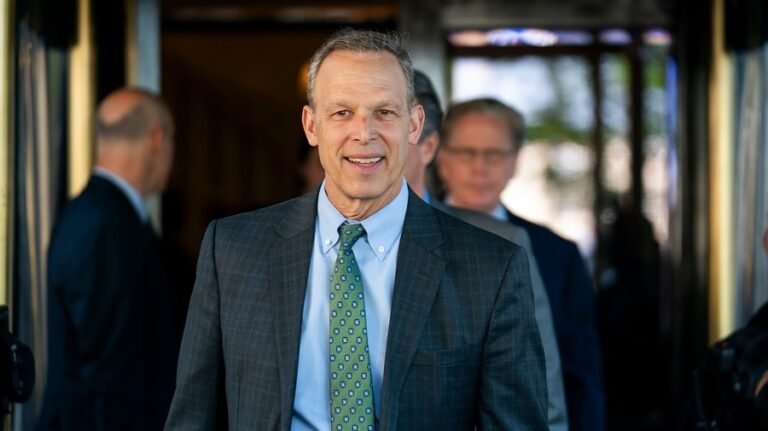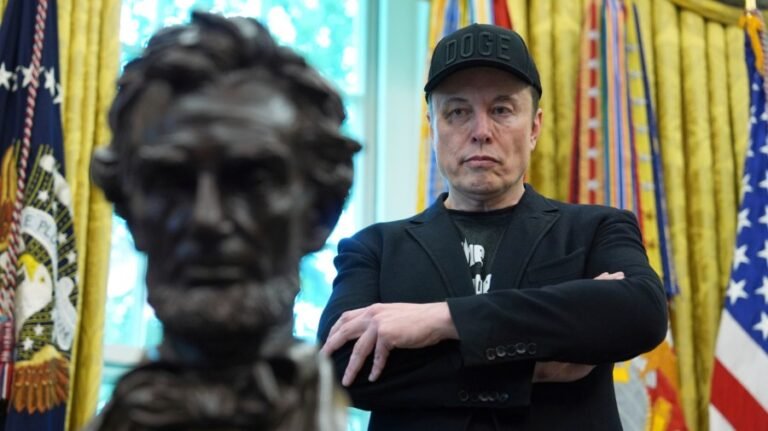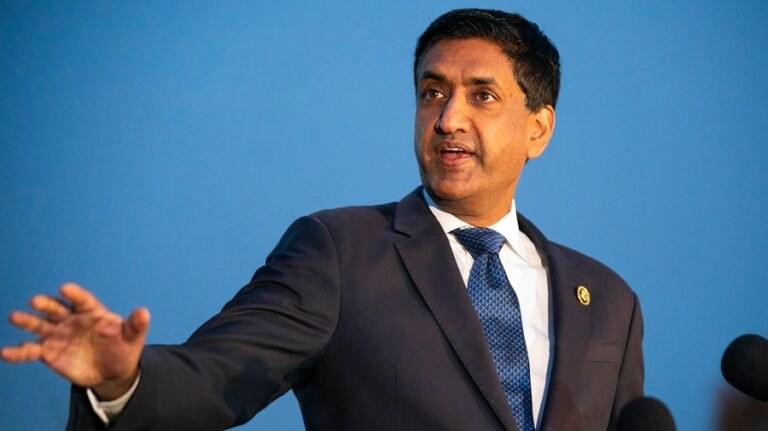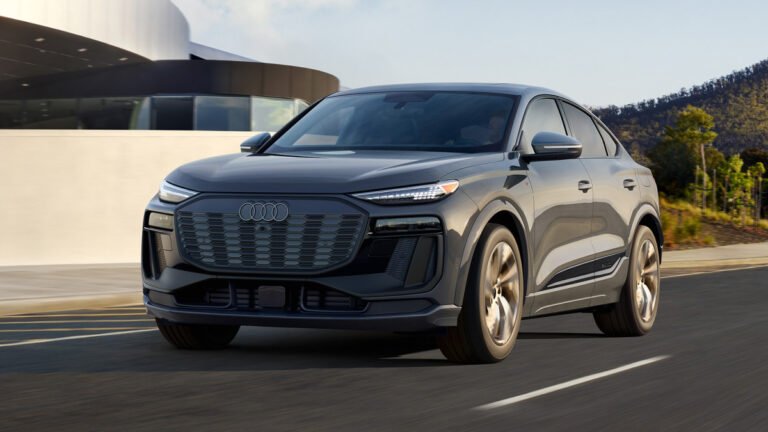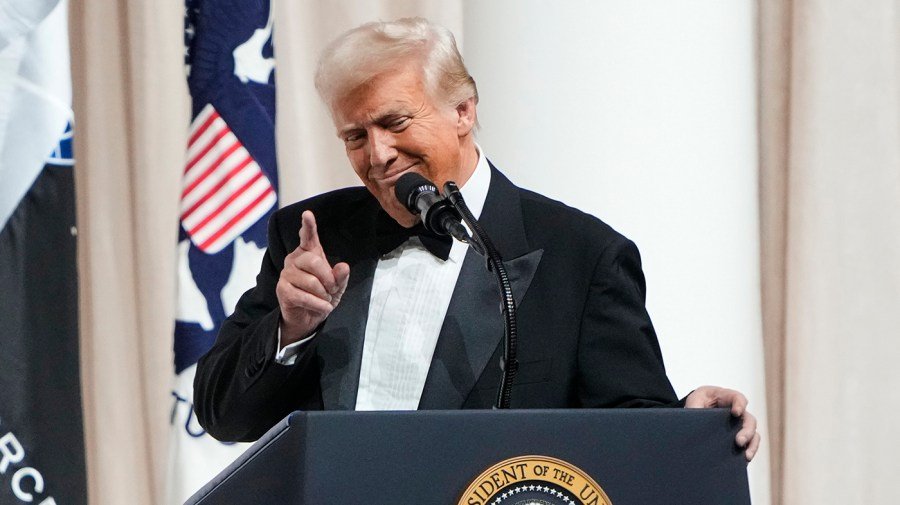
It’s been six months since President Trump began his second stint in the White House, Republicans took full control of Washington and Democrats kick-started their rebuilding period following the crushing electoral losses of November.
So, where do things stand?
The inaugural Hill Nation Summit — held by The Hill and NewsNation on Wednesday — will explore those critical storylines and more through engaging newsmaker interviews with top members of Congress and key Trump administration officials as D.C. reflects on the past half-year and looks ahead to the 2026 midterm elections, 2028 presidential race, and beyond.
“We are just getting started,” Trump declared in March, during his first address to Congress of his second term.
Those first six months have been defined by Trump’s efforts to reshape the government through dramatic cuts to the federal workforce; the implementation of a trade regime that has put U.S. allies on defense and Wall Street on a roller-coaster; the U.S. bombing of nuclear facilities in Iran amid Tehran’s war with Israel; the passage of Trump and the GOP’s megabill of tax cuts that Democrats see as a midterm comeback issue; and an up-and-down effort by that party to coalesce around a new message and lead messenger.
Speaker Mike Johnson (R-La.), Homeland Security Secretary Kristi Noem, White House senior counselor for trade and manufacturing Peter Navarro, House Democratic Vice Chair Ted Lieu (Calif.), former DNC co-Vice Chair David Hogg and many others will join the conversation to discuss those topics and more, as Washington closes out the first chamber of Trump’s return to the White House.
Trump’s report card 6 months into second term
The first six months of the Trump administration and GOP trifecta have in large part been driven by the decisions and announcements made by the White House.
Two of the major themes throughout have been the immigration crackdown at the border and the use — or threat — of tariffs to dictate economic, trade and foreign policy.
The Trump administration has launched a massive deportation effort with the aim of a minimum of 3,000 arrests every day. According to White House aide Stephen Miller, U.S. Immigration and Customs Enforcement has been ordered to expand deportation efforts in Democratic-run cities, and the president signed an executive order to launch a self-deportation program.
Those actions and others have caused a stir across the country, prompting protests in cities nationwide to push back on the mission.
Noem, who has been at the center of those efforts, will join the “Hill Nation Summit” for an interview at 4 p.m. (All times EDT).
On the trade front, the administration is nearing an Aug. 1 deadline for the tariffs on dozens of countries to take effect, after Trump signed an executive order last week to delay the implementation of “reciprocal” tariffs.
The president’s tariff plan has been a hot-button issue in Washington and on Wall Street, with politicians at odds over the effectiveness of the strategy and markets moving at the whims of the trade decisions.
Navarro has been one of the most vocal proponents of the tariff approach, and will sit down at the “Hill Nation Summit” for an interview at 9:20 a.m.
“Trumpnomics and the Trump tariffs will put America on a sounder fiscal footing than any policy proposal in decades,” Navarro wrote in an op-ed for The Hill in May.
Republican control of Washington
House Republicans got their “big, beautiful bill” to Trump’s desk ahead of their self-imposed July 4 deadline, a big achievement that was doubted even by some Republicans.
“I was skeptical we’d be able to get that thing done by July 4,” Vice President Vance had said.
The legislation — which encompasses a large chunk of Trump’s domestic policy agenda — extends the 2017 tax cuts, eliminates some taxes on tips and Social Security, provides $150 billion for border funding and the same amount for defense spending and slashes incentives that promote green energy, among other provisions. To pay for part of the package, Republicans made deep cuts to Medicaid and low-income nutrition programs.
“This is the most comprehensive and consequential set of conservative reforms in modern history,” said House Budget Committee Chair Jodey Arrington (R-Texas), who will join the “Hill Nation Summit” at 11:30 a.m. after helping shepherd the legislation through the lower chamber.
But if getting the bill over the finish line was grueling, selling it to the public is on track to be even more difficult.
The legislation is slated to be the main focus on the campaign trail ahead of the 2026 midterm elections, with Republicans hoping to sell the favored policies in the bill — namely, tax breaks — to the public, and Democrats convinced that the pay-fors in the package, headlined by Medicaid cuts, will win them votes at the ballot box.
Democrats are looking to take control of the lower chamber next year after what will be three years in the minority wilderness. They believe the GOP legislation coupled with historical trends of the president’s party losing seats in the first election since taking office will help them.
Republicans, meanwhile, are intent on growing their majority, and hold a three-vote margin in the House. Both parties are confident their messages will win out.
“It’s gonna help all Americans, and they will see that and they will feel it before the midterms, which is important to us,” Johnson, who will be interviewed at 3:30 p.m., said earlier this month as the House finished its work on the sprawling package overnight. “People will know that we’re doing right, and we’re delivering the America First agenda, and this was our vehicle to do it.”
House GOP Conference Chair Lisa McClain (R-Mich.) — who oversees messaging for the group and will be interviewed at 1:30 p.m. — said Republicans would “set out to spread the message of this historic achievement.”
Democrats, however, have a different view of the situation.
“So what Trump Republicans are doing is not popular and the more the American people find out the more they dislike it,” said Lieu, who will be interviewed at 11 a.m., said last month.
Rep. John James (R-Mich.), who is running for governor in the Wolverine State, and former Speaker Kevin McCarthy (R-Calif.), who led House Republicans back to the majority in the 2022 midterms, will join the conversation to discuss the sprawling legislation and upcoming elections. James will be interviewed at 9:55 a.m., and McCarthy at 1:45 p.m.
Democrats continue rebuilding period
Democrats are still picking up the pieces from their losses in November — failing to win the White House, flip control of the House and keep their Senate majority — a trio of electoral shortcomings that catapulted the party into a period of reflection and rebuilding.
The past six months have been defined by debates over former President Biden’s decision to drop out of the 2024 race — which have cropped back up amid the release of explosive books — conversations about whether Democrats should move to the progressive left or moderate center, discussions about what the most salient message is for the party moving forward, and talks about who should lead that operation going forward.
A half-year in, few answers have emerged.
A poll conducted in May and June by Unite the Country, a Democratic super PAC, found that voters see the party as “out of touch,” “woke” and “weak,” and perceived a slip in approval ratings among several demographics.
Questions about strategy going forward were in large part reflected in Hogg’s rise — and quick fall — as co-vice chair at the DNC, including the discourse about a new generation of leaders in the party. Hogg, the co-founder of Leaders We Deserve, will be interviewed at 12:45 p.m.
“I’m not going away,” Hogg told The Hill last month in his first interview since deciding not to rerun for DNC vice chair.
Leaders would be wise to wrap up the postmortem period soon, as Democrats look to ramp up their efforts ahead of the 2026 midterm elections and 2028 presidential race — where they are intent on making up lost ground from November.
With no clear leader in the party, the Democratic face for 2028’s marquee race is up for grabs. There is not, however, a shortage in people who think they can carry the torch — including governors, members of Congress, former White House officials and media personalities.
One of those figures is Rep. Ro Khanna (D-Calif.), the five-term House lawmaker who has become an omnipresent figure on cable news to discuss the future of the Democratic Party — and a frequent name on the list of potential 2028 candidates.
Khanna will be interviewed at the “Hill Nation Summit” at 3 p.m.
“My goal is to have a substantive vision for the country,” Khanna told NewsNation’s Chris Cuomo in April.
Sen. Amy Klobuchar (D-Minn.) — who has also been floated as a potential 2028 candidate after running in the 2020 Democratic primary, will also be interviewed at 2 p.m.
